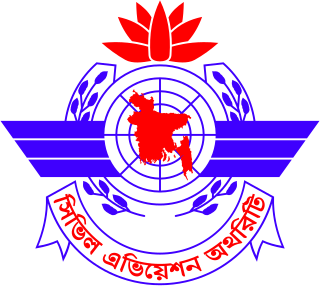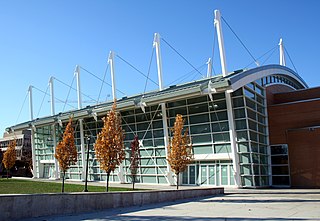
Engineers, as practitioners of engineering, are professionals who invent, design, analyze, build, and test machines, systems, structures and materials to fulfill objectives and requirements while considering the limitations imposed by practicality, regulation, safety, and cost. The word engineer is derived from the Latin words ingeniare and ingenium ("cleverness"). The foundational qualifications of an engineer typically include a four-year bachelor's degree in an engineering discipline, or in some jurisdictions, a master's degree in an engineering discipline plus four to six years of peer-reviewed professional practice and passage of engineering board examinations.

The Institute of Electrical and Electronics Engineers (IEEE) is a professional association with its corporate office in New York City and its operations center in Piscataway, New Jersey. It was formed in 1963 from the amalgamation of the American Institute of Electrical Engineers and the Institute of Radio Engineers.

A psychologist studies normal and abnormal mental states, cognitive, emotional, and social processes and behavior by observing, interpreting, and recording how individuals relate to one another and to their environments. To become a psychologist, a person often completes a graduate university degree in psychology, but in most jurisdictions, members of other behavioral professions can also evaluate, diagnose, treat, and study mental processes.

Certified Public Accountant (CPA) is the title of qualified accountants in numerous countries in the English-speaking world. In the United States, the CPA is a license to provide accounting services to the public. It is awarded by each of the 50 states for practice in that state. Additionally, almost every state has passed mobility laws to allow CPAs from other states to practice in their state. State licensing requirements vary, but the minimum standard requirements include passing the Uniform Certified Public Accountant Examination, 150 semester units of college education, and one year of accounting related experience.

A civil engineer is a person who practices civil engineering – the application of planning, designing, constructing, maintaining, and operating infrastructures while protecting the public and environmental health, as well as improving existing infrastructures that have been neglected.
Regulation and licensure in engineering is established by various jurisdictions of the world to encourage public welfare, safety, well-being and other interests of the general public and to define the licensure process through which an engineer becomes authorized to practice engineering and/or provide engineering professional services to the public.
Licensure means a restricted practice or a restriction on the use of an occupational title, requiring a license. A license created under a "practice act" requires a license before performing a certain activity, such as driving a car on public roads. A license created under a "title act" restricts the use of a given occupational title to licensees, but anyone can perform the activity itself under a less restricted title. For example, in Oregon, anyone can practice counseling, but only licensees can call themselves "Licensed Professional Counselors." Thus depending on the type of law,
practicing without a license may carry civil or criminal penalties or may be perfectly legal. For some occupations and professions, licensing is often granted through a professional body or a licensing board composed of practitioners who oversee the applications for licenses. This often involves accredited training and examinations, but varies a great deal for different activities and in different countries.
Software engineering professionalism is a movement to make software engineering a profession, with aspects such as degree and certification programs, professional associations, professional ethics, and government licensing. The field is a licensed discipline in Texas in the United States, Engineers Australia(Course Accreditation since 2001, not Licensing), and many provinces in Canada.

Building design refers to the broadly based architectural, engineering and technical applications to the design of buildings. All building projects require the services of a building designer, typically a licensed architect or structural engineer. Smaller, less complicated projects often do not require a licensed professional, and the design of such projects is often undertaken by building designers, draftspersons, interior designers, or contractors. Larger, more complex building projects require the services of many professionals trained in specialist disciplines, usually coordinated by an architect.
The National Council of Examiners for Engineering and Surveying (NCEES) is an American non-profit organization dedicated to advancing professional licensure for engineers and surveyors. The Council’s members are the engineering and surveying licensure boards from all 50 U.S. states, the District of Columbia, Guam, Northern Mariana Islands, Puerto Rico and the U.S. Virgin Islands. These boards are divided into four geographic zones: Central, Northeast, Southern, Western. It is headquartered in Seneca, South Carolina, across Lake Hartwell from Clemson University.
A Licensed Conveyancer is a specialist legal professional in the United Kingdom, New Zealand, Australia or South Africa who has been trained to deal with all aspects of property law.
Engineering ethics is the field of system of moral principles that apply to the practice of engineering. The field examines and sets the obligations by engineers to society, to their clients, and to the profession. As a scholarly discipline, it is closely related to subjects such as the philosophy of science, the philosophy of engineering, and the ethics of technology.

Ahsanullah University of Science and Technology or commonly known as AUST first non-government engineering university to be established in Bangladesh. The University is considered as one of the finest engineering universities & the leading non-government engineering university in Bangladesh, which was founded by the Dhaka Ahsania Mission in 1995. Dhaka Ahsania Mission is a non-profit voluntary organization in Bangladesh. The Mission was established in 1958 by Khan Bahadur Ahsanullah.
A Professional Traffic Operations Engineer (PTOE) is a certification sponsored by the Transportation Professional Certification Board, Inc., and promulgated by the Institute of Transportation Engineers. The certification process, which has been adopted for professional traffic operations engineers, requires that the holder be a licensed professional engineer if he or she practices in the United States, Canada or any other country that provides governmental licensing of engineers. This certification process builds on and supports the practice of professional engineering registration. The PTOE is the highest leveling licensing available in the field of Traffic Engineering. Currently, there are approximately 3,000 licensed PTOEs within the United States and Canada.

Civil Aviation Authority, Bangladesh (CAAB) functions as the regulatory body for all aviation related activities in Bangladesh. It is the national aviation authority operating under the Ministry of Civil Aviation & Tourism. All nine operational airports are operated by the CAAB. A member of International Civil Aviation Organization, it has signed bilateral air transport agreement with 52 states. It is headquartered in Kurmitola, Dhaka.

Architectural Engineering, also known as Building Engineering or Architecture Engineering, is the application of engineering principles and technology to building design and construction. Definitions of an architectural engineer may refer to:
An Aircraft Maintenance Engineer (AME), also Licensed Aircraft Maintenance Engineer, is a licensed person who carries out and certifies aircraft maintenance. The license is widespread internationally and is recognised by the International Civil Aviation Organization (ICAO). The American FAA recognise the qualification in foreign countries but refer to it as Aviation Maintenance Engineer rather than "Aircraft...".

M. Feroze Ahmed achieved excellence in teaching, engineering profession and scientific research and earned national and international recognition and awards as an eminent professor, civil engineer and scientist. He is the former vice-chancellor of Stamford University Bangladesh.













